Caroline Leavitt's Blog, page 107
September 4, 2012
Linda Lafferty talks about The Bloodletter's Daughter, history and more
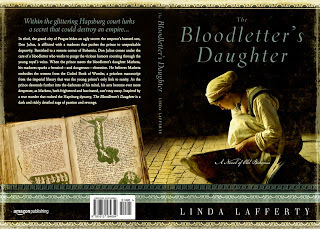
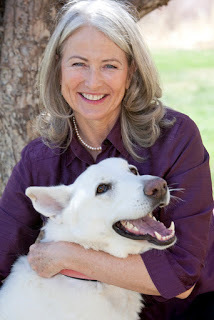
Speaking of history...I feel like I've always known Linda Lafferty. She sent me her novel The Drowning Guard, and I admitted that I didn't really read historical fiction, but within the first ten pages, I was swept up in the world she created--and I felt the same about The Bloodletter's Daughter. I'm honored to have her here on my blog. Thank you for the essay, Linda! And Happy Pub Day!
Seduced by History, in a Far-Off Land
When my husband told me for the nth time to stop assuming everyone knew who Rudolf II, Holy Roman Emperor, was, I became supremely annoyed.
“Americans are better educated than you give them credit for!” I snapped. “Of course they’ve heard of Rudolf II!”
I had submitted the final proofs of my historical novel, THE BLOODLETTER’S DAUGHTER and we were hiking near our home in the Colorado mountains. By chance, we met a high school world history teacher, a colleague of mine. I told him I was publishing a novel about the mad bastard son of Rudolf II.
“Rudolf II? Who was he?”
I was aghast. My husband became disgustingly smug. And I realized that I had been thoroughly enchanted by an obscure (at least by American standards) period of history.
How is it that I fell in love with little-known characters in seventeenth-century Prague and Bohemia?
When I first heard the story of Don Julius, the mad bastard son of Rudolf II, we were on a hiking tour in the southern Czech Republic. When we reached the fairy-tale-perfect town of Cesky Krumlov, I could not believe the Gothic splendor of the castle built by the Rozmberks, a family as wealthy as Rudolf himself. It looms over the town, simultaneously enchanting and Grimm’s Fairy Tale creepy.
Then I heard the tale of how Rudolf imprisoned his son, Don Julius, in the castle and how the prince leered out the windows, his eye riveted on a Bohemian maid, living in the bathhouse below: Marketa Pichler, daughter of the local bloodletter.
Obsessed, the mad Don Julius had her brought to him. And, to avoid any spoilers, that is where the real action starts—and how! An electrical shock ran through me. That’s a novel—my novel!
Imagination ensnared, I became a slave to every fact I could find: alchemy, botany, bathhouses, witchcraft, religion, and science. Bloodletting. Galen’s four humors of the body. Paracelsus’s Bible of botanic cures.
And the mysterious Voynich Manuscript , now housed at Beinecke Library at Yale. This treasure was one of Rudolf ’s prized possessions. Scholars throughout the ages have tried to decipher it, to no avail.
Could I see it, hold it? Study its pages?
The alchemy between historical fact and creativity was at work.
How could I not be charmed? Rudolf ’s court was filled with scientists, alchemists, astrologers, botanists, and physicians. Tyco Brahe and Johannes Kepler’s discoveries defined the science of astronomy. Jan Jesenius performed the first public autopsy. Witchcraft was rampant, superstition laced everyday life.
I was pulled into the vortex of Old Bohemia, washing away the moorings of modern day reality.
Transported into another time and place—this is what I love as a reader of historical fiction. And I believe fervently that to write a historical novel, the author must first be transported, so absorbed that she loses herself in that other world.
And the only way to find my way back was to finish the novel. To be released from one faraway world to pursue another. Hmmm, Slovakia this time, seventeenth century? THE BLOODLETTER’S DAUGHTER publishes September 4
Published on September 04, 2012 05:25
R. J. Keller interviews Kristin Tsetsi about Pretty Much True, her quirky sense of style, German beer and more
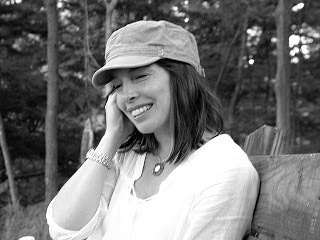
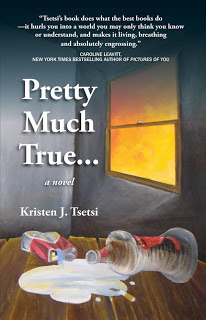
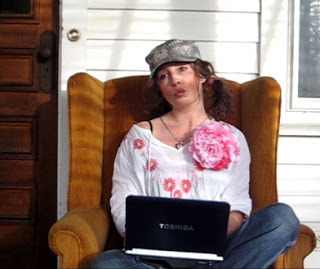
I love the Paper Rats and the videos they do (especially since they allow me to be goofy in them.) When Kristin told me she had a new novel coming out and would I read it, I, of course, said yes. The book is extraordinary. It gets at the heart of what it's like to be one of the ones waiting while your loved one is in Iraq. Raw, real and blazingly honest. I asked the other Paper Rat, the novelist R. J. Keller if she'd like to interview Kristin--so I'm thrilled to have them both here on the blog! Thanks, guys!
Pretty Much True... is unflinchingly realistic, almost painfully so at times. Did you ever find yourself wanting to sugar-coat anything as you wrote?
A few (very few) things Mia does, specific actions, are pulled directly from my experience. I sometimes wondered whether I’d be revealing too much of myself or my handling of (my husband) Ian’s being in Iraq (he had already been home for a year before I started writing Pretty Much True…), but then I remembered, “This is fiction. No one’s going to know which few bits are real.”
As for the greater realism of the story, I was never tempted to sugar-coat anything. When I started taking writing seriously at about 19, I was morbidly fascinated with drawing out the truth, and the more embarrassing, or the less likely we’d be to talk about it out loud, the better. It’s part nosiness and part lust for make-your-gut-churn, hard-core honesty, but more than anything else, it’s a desire to force an admission that the things we hate about ourselves or others are completely natural. It’s also an effort to make those unlikable, ugly things a bit more lovable. Even funny. The characters in PMT all have surface traits or behave in ways I’m almost positive would turn people off in real life, but that – once exposed to their sources – make perfect sense and make the reader think, ‘Ohhh...that’s why.’ Just as it would happen in life.
Why did you write this particular story? Was it a cathartic exercise?
I’ve been writing fiction for about two decades, and I’ve always leaned toward stories about whatever is foremost in my life or psyche at the time. Like many people who write, I’m almost unconsciously turning about twenty events or observations per week week into a potential story or scene and would probably wear a t-shirt that reads, “The unwritten-about experience is not worth having.” As trite as it sounds, it’s how I truly feel, and the experience doesn’t necessarily have to be my own. This was an experience that wanted to be a book not just because it was filled with all of the necessary and compelling elements, but because it would provide a window into something most won’t ever experience—or otherwise have this kind of access to. Seven different personalities, with their own lives and everyday conflicts (whether stemming from issues with a romantic relationship, memories that won’t go away, or attachment to a child), still have those conflicts, but their personal atmosphere resembles that of a tornado. The worldOne of the things you focus on in PMT is the sometimes glib way in which the news media reported on casualties when the war began, almost like it was a numbers game. Do you think media coverage of the war has improved any or gotten worse?
It’s virtually non-existent. When soldiers are killed in Afghanistan these days, they receive a second- or third-story mention. The war is “old news.” When announcing casualties, the anchors may as well be saying, “Gas prices rising in New England, and the sun once again beating down on the desert dunes.” (The relatively recent trend of news anchors to speak in gerunds, as if it adds to the immediacy of the story, is also something I find troubling. This comes out a little bit in Pretty Much True….)
You, like your protagonist, Mia, spent some time working as a taxi driver. Share a funny experience from that.
Oh, there are so many…! Here are just a few: 1. The two older men in dirty overalls, with white beards and mustaches stained yellow around their mouths from nicotine, who asked when I picked them up if they could put their dog carrier – dog included – in the trunk. (“No,” I said.) 2. The two women who asked from the back seat whether they could smoke crack in the car. When I said no, it was illegal, they said, “What about pot? Can we smoke that?” (“Uh, no. That’s illegal too,” I said. One of them muttered, “Cops smoke it.”). 3. This one isn’t funny, but memorable. One man directed me to what I believe was a drug deal in a house on a narrow, pavement and gravel road. Before getting out of the car, he asked me to wait for him. He went inside the house, and I listened to some NPR. After a minute or two, he was in the yard waving me away. “Go on. Get out of here,” he said, and the way he was looking at me told me it was probably the safest thing to do. It was very exciting.
The first time I read this book, I REALLY disliked Denise. I've read it four times since, and now she's my favorite character. Denise craves an identity and life of her own, apart from that of Military Wife, while Mia finds it difficult to do that, or even to go on with her life while he's away. Was your experience more like Denise's or Mia's?
It was a combination of the two. It was never my interest or intent when marrying someone in the Army to identify myself as a “military wife.” I haven’t really become a part of the spouse community. Not because it’s military, but because there’s never been an interest in classifying myself as a “spouse” or as Occupation’s Wife. (Also, my husband is an Army aviator who also flew professionally outside of the military, so which would I choose – pilot’s wife or Army wife? It gets very confusing.)
At the same time, when Ian was gone, I was very much aware, constantly, of what time it was in Iraq, what he might be doing, when he might be waking up, when he might be going to bed. It made me feel connected to him to imagine him doing things. My identity became very wrapped up in his existence, at the time, and as much as it was something I needed, there were days it really pissed me off and made me resent him, even if it wasn’t his fault. I wondered, Where have I gone?
You lived in Germany for quite a while. Which beer is best?
I feel like I should have a really good answer for this, having spent 13 of my formative years in the beer capital of the world and having a father and a sister who both truly love the flavor. As a high schooler in Germany, I was old enough to go to the bar at sixteen, so I had plenty of it over the years because it was cheap (less expensive than a glass of Coke, if I’m remembering correctly), but I just never acquired a taste for it. One day, though, in a restaurant called the Bier Museum in downtown Heidelberg, I tasted what was said, at the time, to be the world’s strongest beer: EKU. It was so bad. Syrupy and bitter. But very strong, as advertised. Very, very strong.
Caroline Leavitt says you have a quirky sense of style.
I wish! I think this refers to a Facebook profile picture taken of me when I was playing the role of Sex and the City’s Carrie Bradshaw for an Inside the Writers’ Studio video. I bought a shirt at Goodwill with bright pink flowers on it specifically for that character, thinking at the time that it was hideous. After that, it was a trip to the craft store for a huge flower to pin to the shirt. (I’ve since grown very attached to the shirt and wear it all the time.) That’s the quirkiest my style has been – it’s nothing compared to the wonderful Leavitt cowboy boot fetish. Usually, I’m pretty conservative with a small twist of hippie.
Published on September 04, 2012 05:17
August 24, 2012
Emma Straub talks about Laura Lamont's Life in pictures, swimming pools, being a bookseller and so much more
Emma Straub wears great vintage dresses, works in a bookstore, and has one of the hottest novels out, Laura Lamont's Life in Pictures. She's also one of the nicest people on the planet. The author of Other People We Married, she's also published in Tin House, The Paris Review Daily, Slate, The New York Times, and more, and she's a staff writer for Rookie. I'm thrilled to have her on my blog. Thank you, Emma!
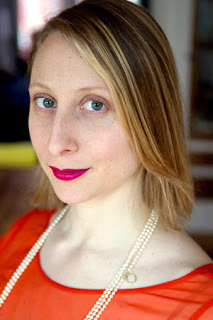
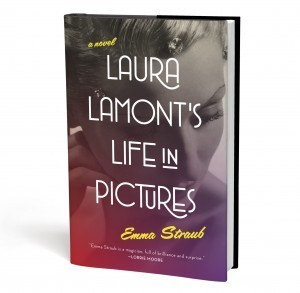
I loved all the old world glamour--so are you an old movie film addict? Did you watch films as you were writing this? What was it about that era that entranced you so much?
I'm no terribly glamorous in my every day life--can't walk in heels to save my life--so part of it was definitely that silky sheen, that put-togetherness that attracted me. I do love old movies, though I'm not a true film buff--I have some friends who are real, true devotees, and I wouldn't put myself in the same category. Doing the research for the book did mean watching lots and lots of movies, though, which was fantastic fun.
The novel has a kind of modern sensibility, too, in that Laura Lamont has to figure out how to balance everything in her life while being in the most unreal atmosphere on the planet: Hollywood. Do you think it's possible to balance everything, or should we learn to make peace with the chaos?
You know, I used to think I was good at balancing everything, but right now I'm more of the mind that balance sometimes means only doing one thing. Right now, for example, I would really love to be working on my next novel, but there are simply not enough hours in the day. It's been such wonderful, lovely chaos, everything leading up to Laura's release, but chaos nonetheless.
What was it like growing up with a famous writer dad? Did it influence you at all in how you work? Do you show him your drafts? Does he show you his?
When I was younger, I would show my dad every thing I wrote in its very earliest stage, but nowadays I like to wait until something is more polished, more fully formed. And he just gave me the first hundred or so pages of his new book, so that was exciting. It's really great having a writer parent, I must say, but both my parents are incredibly supportive boosters. I think you'd be hard pressed to find a couple who cares more deeply about books.
Has being a bookseller informed your view of the publishing world? Do you feel like you know things that other writers don't about how things work?
I do! And I think every writer should work in a bookstore, both to have the fun of talking about books all day and also to have the perspective. I'm standing in the bookstore right now, and there are thousands of titles here, thousands. I think it helps me keep my self-importance in check, and also to feel like a part of a much, much larger community.My book will be one of many.It's good to remember that.
So, what's the secret to being so beloved? I don't think I've heard anyone even narrow his or her eyes at the mention of your name.
I'm sure that even hearing that will make some people narrow their eyes! I have no secret. I am nice to people. I feel sorry for people who aren't. It's much easier this way.
What's obsessing you now and why?
Swimming pools. I have hardly left the city all summer--work work work--and for months, all I've done is fantasize about swimming pools. It's a very base desire, really.
What question should I be appalled that I forgot to ask you?
What I'm reading! Right now I'm reading Megan Abbott's Dare Me, which is so, so dark and fabulous. I always knew cheerleaders had hearts made of gasoline.
Published on August 24, 2012 14:13
August 23, 2012
Hey, high school students! Enter the Gaithersburg Book Festival Short Story Contest!
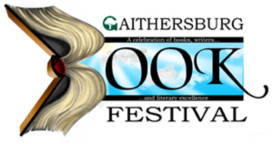
I'm thrilled to report that I'm going to be judging the Gaithersburg Book Festival's Third Annual Short Story Contest--and I provided three opening lines. High school students from across the Washington Metropolitan Area are invited to submit short stories.
The sentences are:The first time he saw her, she was homeless, sitting in Union Station eating crackers from a paper bag…I was 16 the year my brother vanished…Every summer, whether he or she wanted to or not, one person was chosen to go to the moon…In order to participate, individuals must be enrolled in grades 9 through 12 at a public or private school, or in a homeschool program for the 2012-13 school year, and reside in Maryland, Virginia or Washington, DC. Stories must be no longer than 1,000 words and must be submitted as a Microsoft Word document to writingcontest@gaithersburgbookfestival.org by midnight ET on Feb. 15, according to the City of Gaithersburg.Up to 15 stories will be selected as finalists and posted on the Gaithersburg Book Festival website prior to the festival on May 18, the city said. The first-, second- and third-place winners will be announced at the festival and will be awarded $100, $50 and $25 gift certificates, respectively.In 2012, the short story contest garnered 141 entries written by students from 13 counties in Maryland, Virginia and DC.Chevy Chase resident Cary Spector, a student at Bethesda-Chevy Chase High School, was one of the 13 finalists selected for the high school contest last year.Spector's short story, "The Writer," can be read on the festival's website.For more information about the Gaithersburg Book Festival short story contest, visit the official GBF website.
Get writing! I can't wait to read!
Published on August 23, 2012 13:35
The Orange Duffle Bag Book empowers at risk kids
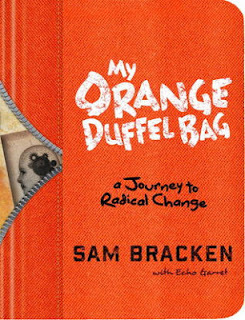
When Kathy L. Patrick, the founder of the Pulpwood Queens, urges me to look at a book, I instantly obey. Especially when she dyed her hair orange to support this book and its mission! My Orange Duffel Bag, A Journey to Radical Change, by Sam Bracken, offers at risk kids a way to empower themselves and get back on track. I'm honored to interview Sam here. Thank you, Sam!
Tell us about the orange duffel bag and it’s mission to support and empower at risk kids, especially those “aging out” of the foster care system.
The mission of the orange duffel bag foundation is to help at risk kids become self reliant through life plan coaching, training and advocacy. Our primary focus are kids aging out of foster care because that have not safety net or support system to become self reliant. Echo Garrett can give you more detail.Echo: We concentrate on teens and young adults ages 12-24, because not many nonprofits work with older teens and young adults. Young people who have been in foster care have the highest rate of unemployment in the country except for people with disabilities, and 70% of the people in our prisons report having spent time in foster care or homeless shelters as children. We're determined to help break the cycle of despair.
I have to admit that reading the brochure, particularly the stories of some of the grads, who were inspired to reach for the stars--and who succeeded--made me tear up. How do you get people to change their thinking from I can’t to I will?
We have a 12-week training and coaching program that takes kids through a proven process to help them change their thinking and behavior to start passionately moving toward their goals. Echo can give you great detail.
Our coaching takes them through each of Sam's 7 Rules for the Road and helps them first tell their story, and then identify their strengths and develop a plan. We also help them learn how to work through roadblocks and barriers rather than giving up; how to connect with safe, caring adults to that they don't give up; and finally, how to give back and be grateful for the people in their lives. By the end of the 12-weeks, we regularly witness remarkable transformations in young people who have endured more than most people can even imagine. They feel loved and safe with us, and their eyes are opened to the fact that they have choices.
I love the four tabs, spiritual, physical , mental and emotional, and the idea of writing in a notebook. I know that words have power. Does it take convincing for these kids to know that, too?
These wonderful kids are at different levels. Some kids get it quickly and move immediately in a powerful positive direction others need time to understand and process the new ways of thinking and behaving. That is why we have the program for 12 weeks with strong support after the graduation of the class with a group of advocates that can help them connect the dots and continue making progress.Initially, some of the kids are shy. Many of our kids are also way behind in school, because they often get moved within the foster care system. That's why we encourage them to express themselves in the ways that feel comfortable to them. However, they are required to earn a certain number of points by writing in their notebooks and doing the exercises in order to earn the laptop. That's a powerful motivator, and they get really engaged. Our last graduation several of the students produced Powerpoints that moved the attendees to tears.
How did you feel when Kathy Patrick, the creator and beloved leader of the Pulpwood Queens Book Club, dyed her hair orange in support?
I felt wonderful. I dyed my hair orange and so did everyone in our family. Heck, my neighbor Brent dyed his hair orange and he is the CEO of a major company.We were moved by her support and commitment. She's passionate about literacy and saw our book as a powerful link to young people who normally don't read. Since Sam was wrongly in special education until he was 13 and a caring teacher figured out he needed glasses, visuals were really important to him. That's why we had every page of the book designed.
What’s obsessing you now and why?
What keeps me up at night is wondering about the 2 million homeless kids in our country - the 500,000 kids in foster care and the terrible struggles they are having just trying to become self reliant. Too many of them end up homeless, in prison or lost forever. You can be smart, hard working, with all the desire in the world and you still need help. No one reaches their potential completely utterly alone in this world. Our children that are aging out of foster care are invisible to the world, alone, and often times lost. We need to do more to reach out, reach across and reach up to help them, one at a time. It may be messy but it will be worth it. That's what saved me and got me out of very difficult circumstances as a kid and it will help host of kids in trouble today. A hand full of caring adults changed the trajectory of my life. If every capable American would just help one kid in their life time we would not have this challenge in our country.
I believe that if more people understood the barriers kids in foster care and homeless teens and young adults face that we could join together and make a big change. These are our kids, and they deserve a hopeful future.
What question didn’t I ask that I should have?
You can learn more about Orange Duffel Bag Foundation at www.ODBF.org. Our goal is to take our program nationwide. [image error]
Published on August 23, 2012 13:13
August 16, 2012
Debra Ginsberg talks about What the Heart Remembers, cellular memory, delicious baking, and so much more

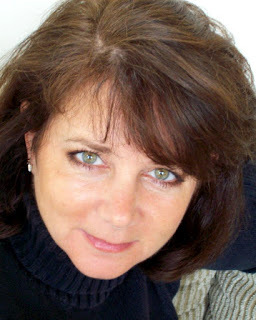
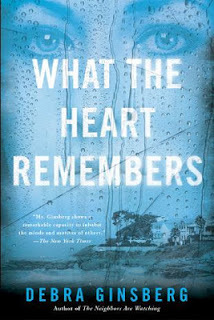
I owe Debra Ginsberg a lot. When I was first starting to be a reviewer, I actually got a monthly column at The Boston Globe. I was terrified of picking the wrong books. I wanted something I'd fall in love with, something I thought others would fall in love with, too. I roamed the local bookstores frantically and then I found it: Waiting: The True Confessions of a Waitress. I read the first two pages standing in the store, even as a smile spread across my face. Since then, I've followed her career relentlessly, from The Grift, Blind Submission, The Neighbors are Watching, and more. And, of course, I've been following her extraordinary baking! Every picture I see seems to be whispering my name! I'm thrilled to have Debra here to talk about her amazing new novel, What the Heart Remembers. Thank you, Debra!
I first fell in love with your work because of your memoir Waiting, about your time as a waitress and your beginnings as a writer. What do you wish you could have told yourself back then that you know now about writing, and why?
Writing has always been the only thing I ever wanted to do and I say this with no exaggeration. From the age of about five (at which time I dictated stories to my mother because she could write them down faster than I could), I have had a one-pointed desire to not only write but write for an audience. I read a great deal as a kid and a trips to the bookstore had the same thrill as trips to the toy store. But every time I went into a bookstore I envisioned what MY book would look like on the shelf or the table or in someone’s hands. I have been writing for *cough cough* let’s say a long, long time. But it took decades to actually get published. When I did, with Waiting, it was in every way a dream come true and I enjoyed every single second of it down to seeing my name on the carton of author copies that arrived from HarperCollins. But despite what I already knew about the book business (and I had already worked in it for a few years), I was wholly unprepared for how difficult it was going to be to make a living from my writing, even when my books were well-received, after Waiting. There are some decisions I would have made differently had I known or anticipated this, but I would have continued writing. I’ll never stop writing.
The tension in What the Heart Remembers is deliciously relentless, so I want to know, how’d you do this alchemy? Do you plan ahead or hope for the best?
I do a little planning ahead and a lot of hoping for the best. I always have a starting point for my novels and always know where I want to end up, but almost never know how I’m going to get there until I’m in the thick of it. In other words, I know that somebody dunnit at the beginning of the book, just not who or how. My editors have found this “interesting,” to use their euphemism, but writing outlines has never been my strong suit. Characters, scenes, and even plot (to some extent) have a way of changing as I write and part of the fun for me is discovering the details I’m not aware of until I’ve lived with the characters and their world for a while. I’m also somewhat impatient, which sometimes helps in maintaining the tension in a scene. I’ll be writing away and suddenly think, we’ve been in this room an awfully long time—must get out of this chapter now!
I’m fascinated with the whole idea of cellular memory, especially in transplant patients, and especially as shown in What the Heart Remembers. I also loved , in your novel, The Grift, the whole idea of a psychic who wakes up to find something else might be going on. I sort of believe that quantum physics will reveal to us just how weird the world really is and that there might be science behind so-called psychic phenomena, but I’m intensely curiously about what you think.
I honestly believe that there is an explanation for everything, but I also believe that some explanations are beyond what we can process intellectually—which is where the leap of faith comes in. The line between these two—faith and science—is sometimes so thin (in my humble opinion) as to be imperceptible. Why else would the Higgs boson be referred to as the “God particle”? The world is weird, isn’t it? Which is something I think we can all agree on although it’s always nice to have it reaffirmed by, say, NOVA. Cellular memory has always seemed an entirely reasonable concept to me. After I gave birth (and I think many women would agree with me here), I suspected that while my brain would likely forget the specifics of the pain, my body would forever remember the physical trauma. (It turned out that neither brain nor body forgot anything—but that’s a different story). Cells store so much information—DNA!—why not memory as well?
I love that you mentioned you like to write about characters in “the gray zone between good and evil.” Come on, talk a bit about that.
I’ve been advised many times to make my characters (especially the female characters) more "sympathetic" or, for lack of a better word, nicer. But whether or not it’s my way of being contrary, I think it’s possible to write complicated characters (especially female characters) that are capable of both good and evil, kindness and cruelty. Obviously, a novel can’t be relentlessly grim and expect to retain readers, but I think characters should be a little surprising. I think they should be flawed, heroic, despicable, loving, angry, and interesting. The one thing they should never be is boring. My greatest fear is writing a boring character. The gray zone is inherently interesting so that is where my characters tend to hang out.
I find it equally fascinating that you are this extraordinary baker as well. (One creativity leads to another!) How did this come about?
Well, I had just started dating a man... Oh dear, I so don’t like the way this is sounding, but it’s the truth. Let’s say this man worked for a publisher. And let’s say he started bringing me beautiful baking cookbooks from said publisher. And let’s also say he started crying about how nobody had ever baked him cakes or pies and... So that’s how it started. But then it really started taking on a life of its own when I realized that cake can also be art. In a way, it’s a lot like writing. There is the essential idea and then it becomes something you need to conceive, plot, and execute (say, an Angry Birds cake or, um, Stonehenge). The difference is that it’s 3D, delicious, and nobody complains that it’s unsympathetic. In fact, everyone loves cake. It makes people happy. And making cake – especially cake that looks like something else – makes me happy. It is a really wonderful—and relatively safe—creative outlet. Plus, there is no end to the new techniques and skills one can learn. Or, as it turns out, the money one can spend on it.
Published on August 16, 2012 17:22
August 15, 2012
Patricia Ann McNair talks about The Temple of Air, politics, running, and so much more

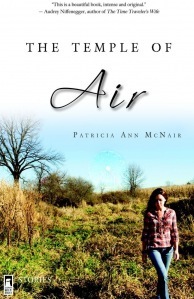
The Temple of Air, Patricia Ann McNair's extraordinary new book, arrived in the mail and I began to leaf through it, and in one page, was hooked. Of course, I had to track her down and get her to come on my blog and talk about it. And I'm stealing her own author bio because anyone who has breaded mushrooms for a living is immediately interesting, right?
Patricia Ann McNair has lived 98 percent of her life in the Midwestern United States. She’s managed a gas station, sold pots and pans door to door, tended bar and breaded mushrooms, worked on the trading floor of the Chicago Mercantile Exchange and taught aerobics. Today she is an Associate Professor in the Fiction Writing Department of Columbia College Chicago, where she received a nomination for the Carnegie Foundation’s US Professor of the Year. McNair’s collection of short stories, The Temple of Air, was called "a beautiful book, intense and original," by Audrey Niffenegger, and has received a number of honors, among them the winner of Southern Illinois University’s Devil’s Kitchen Reading Award and the Society of Midland Authors Finalist Award.
Thank you so, so much, Patricia.
The Temple of Air is racking up all sorts of prizes, including a Finalist in the Society of Midland authors. How discombobulated and amazed are you--and does it make it more difficult to go on to your new work? (And what IS the new work?)
These honors have left me—as my British husband says—gobsmacked. Meaning, I am stunned and overjoyed by all of this. So many first books come out and just quietly sell (or don’t) without receiving the attention they often deserve. The Temple of Air was the first fiction title by a single author published by Elephant Rock Books; this makes it particularly gratifying to get noticed among so many new titles by long established presses and authors. The top Society of Midland Authors Award and the other finalist award went to big best sellers by major publishers. So I really couldn’t be happier or more excited and honored by their putting me on the list, and by the other positive attention, like being named the winner of the Devil’s Kitchen Readers Award by Southern Illinois University.
Recently so much of my time has been spent working on promotions, traveling, doing readings, workshops, bookclubs, and the like, that it has been a bit difficult to get deeply entrenched in the work of the novel-in-progress, Climbing the House of God Hill.You know how it is; even the most dedicated writer needs to be able to lose herself in the trajectory of a longer piece, and stealing moments here and there is not the most conducive to finding the breadth and depth of a story. What I have been doing a lot of—what I also consider essential to the writing process—is reading, reading, reading. Everything. And rereading. (I just finished rereading two of your earlier books, Caroline. So interesting and educational to take a couple of books written over a period of years and read them back to back to see the evolution of a writer’s work.)
The projects on my desk right: doing my final passes over a “finished” novel a publisher has expressed interest in, doing publicity for an upcoming creative nonfiction anthology I am part of called Briefly Knocked Unconscious by a Low-Flying Duck, working on an essay on place I was invited to do for a composition text book, a travel article assignment for a magazine, a chapter for a textbook on the short story, and a short story idea. These smaller projects are a good way to keep the writing going in doses until I can really dig into the novel-in-progress again. And they are relatively easy to manage with my current promotional schedule and the upcoming semester in the Fiction Writing Department of Columbia College Chicago where I teach.
What is about the midwest that makes it so this novel could not have happened anywhere else?
I set The Temple of Air in New Hope, a fictional small town in the Midwest, perhaps because this is the place I know best. I grew up in the suburbs of Chicago, but have spent all sorts of time in small towns around the Midwest. One set of grandparents were farmers in Southern Illinois, the other set were a retired preacher and ex-missionaries settled in Ohio; I first went away to school in a tiny town in Iowa; I lived in a small Midwestern city when I dropped out of college; I bartended in small town taverns and pumped gas at small town service stations; I taught in an arts boarding school in a little Michigan town; I have a house in a small town in Northwestern Illinois. And what I have discovered about this region, what I hoped to capture in this book, has some to do with the topography of this place, the gentleness of it, the variety of the landscape. There are hills and lakes and rivers and marshes and towns and cities and farms and cabins in the woods. This is the backdrop I wanted for my stories, this pretty, gentle one I found in the Midwest.
Perhaps, though, there is a Midwestern mindset, a way of being that is essential to the book. Midwesterners are friendly—they reach out to you without your asking them to. For instance, in the story “The Things That’ll Keep You Alive,” a contractor working on a home remodel job for a woman recovering from breast cancer surgery brings her a briefcase full of home grown tomatoes one evening. In “The Twin,” a man who owns an ice cream parlor feeds another man who got stuck in a complicated situation while trying to rob the ice cream parlor. In the opening story, “Something Like Faith,” a teenage boy comforts grieving parents after an accident, even though he doesn’t know them.
Is this particular to the Midwest? Perhaps not, but it is intrinsic to it, and it is what I know from living most of my life here. We smile at folks on the street. We say hello when we pass on a small town sidewalk, whether we know one another or not. We know each other’s business, but we try to stay out of it as much as we can. And on every corner there is either a church or a tavern. These places of faith and diversion are very much a part of The Temple of Air.
There's such a strong current of time and place running through the book, which creates what I (okay, I stole the term from John Truby and his story structure) call storyworld. Do you design this all out before you start, or did this surprise you?
The wholeness of the storyworld (great word, no matter where it comes from!) was something that I discovered along the way, so it did surprise me. The Temple of Air started its life in a couple of short stories that were the earliest things I got published, and as I continued to write more stories, the world began to show itself to me. And after a number of the stories were done, I realized there might be a book here.
The timeline very closely mirrors my own (childhood and young adulthood in the 60s, the 70s, during the Vietnam war; adulthood in the 80s, 90s, beginning of this century during a particular time of greed, I think, and the myth of easy access to the American Dream.) But setting these times in a small town like the fictional one I’ve created called New Hope made it easier for me to access the despair, joy, faith, longing and so on behind the ordinary moments my characters experience. What am I trying to say, here, really? I guess that for me, the small town storyworld cleared a lot of the distractions out of the way you might find in a big city storyworld, and that helped me to put more focus on the ordinary moments, and to let these become more vivid in the stories I wrote. And then it began to have a snowball effect: once I started to see certain things in the storyworld (recurring locations, overlapping characters, similar current concerns, landscapes) I tried to use them more to create cohesion, to structure a wholeness.
Can you talk about your writing process a bit? Do you have rituals, like having to drink 18 thousand cups of coffee?
Oh, man, I worship the Goddess of Coffee. But 18,000 would probably be too many. I do start just about every project with a cup of the good strong stuff (coffee, not whiskey) by my side, and as I get the motor going (it runs pretty rough for a while) I sip and write and read back and get up and fill another cup and write again, and eventually (on the good days) the writing starts to take over and the coffee goes cold in the cup.
I’ve been using other art forms to help broaden my creative process. I’ve taken a number of printmaking classes, a ceramics class. And I co-teach a class called Journal and Sketchbook with my husband, the artist Philip Hartigan, and do quite a bit of sketching to loosen things up and to see my written work more fully, or to figure things out in the revision process. (I am a crazy rewriter; I do dozens of drafts of things.)
Essentials:
· A journal to sketch in and to sort out my thoughts—those directly related to the story as well as those that distract me from the story. “The Joke,” one of the shorter pieces in The Temple of Air, started out as a journal entry I was writing in bed before I turned the light out. But the writing took over and pulled me out of bed; I had to go sit in the den until I finished the first draft.· A comfortable place. I love rituals and working habits, so it helps me to set up a place that puts me at ease. I even do this on the road if I am intending to get any work done. Here, let me move this chair over near the window, put this light close by. Here, let me go out and find a new mug to put all of my pens and pencils in. Here, let me put up this chapter list on the wall so I can see where I am in the book. Here, let me line my books up on top of the dresser so I can find what I need easily. It drives my husband a little nuts, I think. He is the sort of artist who can draw anywhere on anything with anything, and I admire that skill.· Quiet.· A running habit. I learn a lot about my work while I am running, talking in my head to the slow rhythm of my steps.· Significant chunks of time. I am not a slow writer, particularly, but I take a while to warm up and dive in. It is frustrating if I have to stop as soon as I finally get started.
What's obsessing you now and why?
I am a little obsessed (can you be just a little obsessed?) with politics, it being an election year and all. The wide divide between the haves and the have nots that continues to grow; the confusion of religion and government; healthcare (particularly, but not limited to, women’s healthcare); marriage equality; equality in general. I try not to overtly write about this in my fiction, but all of these things will find their way into what I write, no doubt. The work in progress deals with issues of homeschooling, economics, immigration, racism, depression, but all in service to the story (I hope.) I don’t want to be preachy, but I do want to tell stories in which people are affected by the culture and times they live in; isn’t that the way it is in real life? I think it was George Bernard Shaw who said "The man who writes about himself and his own time is the only man who writes about all people and all time." The Temple of Air is about so many things I think about a lot: war, grief, false gods, love, faith, family—things that will probably be in every story I write, things we all grapple with daily.
What question didn't I ask that I should have?
If you asked me what my new favorite part of all of this is, I would tell you that it is meeting new people along the way. I do a lot of readings and have met with a lot of bookclubs, and I so enjoy coming face to face with folks to whom reading matters. I really love talking with bookclubs about my work and the other things they are reading—I get a lot of good suggestions from them.
There is a lot of talk about how we are becoming a society that reads less all the time, but I don’t think I buy that. We read differently perhaps, fitting it in the small spaces around our busy lives (on the bus, in line while waiting for coffee, in the Laundromat while the clothes dry, before we turn off the light at night, from hardcovers and paperbacks, on our phones and tablets and computers) but we read a lot, and we read what we want to. Publishers will tell us that folks don’t read short stories, they (we) don’t want dark characters (particularly dark women characters), they (we) don’t like to be too challenged, they (we) read just for entertainment. Hooey. I have met readers all over the country who cannot be lumped into any one category, and I find that exhilarating and inspiring. I have read at bookstores here and in England and I can tell you that there are readers out there choosing a wide variety of titles. And while some of the larger, chain bookstores have not survived, the local, independent ones are picking up the slack. They are developing and supporting vast communities of readers and writers, and that should hearten all of us.
[image error]
Published on August 15, 2012 08:34
August 13, 2012
Meg Pokrass Uncaged Interview with the Amazing, Wonderific Dan Chaon who talks about the rain of frogs in the movie Magnolia, writing to Ray Bradbury, video games and more
Note from Caroline:
Meg Pokgrass is back with another fantastic Uncaged Interview and with none other than one of my favorite writers on the planet--the brilliant, hilarious, man with-a-heart-the-size-of-Jupiter--Dan Chaon. Dan's most recent book is Stay Awake (Ballantine) which is coming out in paper this October. Other recent publications include stories in the anthologies Shadow Show: All new stories in celebration of Ray Bradbury, and 21st Century Dead: A Zombie Anthology. He's written the afterward to the re-release of Thomas Tyron's novel, The Other and he co-edited along with Norah Hardin Lind and Phong Nguyen, Nancy Hale: On the Life and Work of a Lost American Master. He's also just completed a screenplay based on his novel Await Your Reply for the production company, Anonymous Content. Dan's other books include two novels, Await Your Reply and You Remind Me of You, and two story collections, Among the Missing and Fitting Ends. He lives in Cleveland and teaches at Oberlin College, where he is the Pauline M. Delaney Professor of Creative Writing and Literature. Thank you, thank you, thank you, Meg and Dan for this glorious mischief!
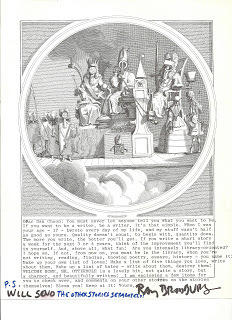
Ray Bradbury's letter to Dan
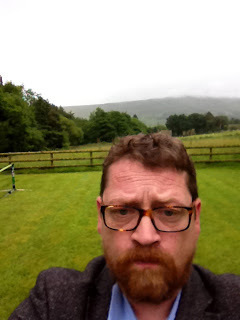
Portrait of the author in a field perfect for space alien invasions
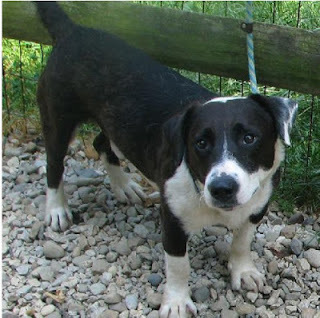
Ray Bradbury, the canine

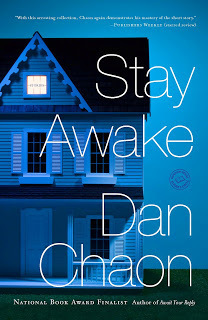
MP: What are your favorite movie SCENES of all time?DC: Aw, this is a party game where you always end up rethinking yourself in the morning, but okay, I’ll play. But I get to choose 20. NOT definitive! --Orson Welles tearing apart the room in Citizen Kane after his wife leaves him. (All of Citizen Kane, actually) --final confrontation in the church steeple in Vertigo (all of Vertigo, yeah. ) --final confrontation scene in Rear Window. (All of Rear Window, too)--Michael Corleone closing the door in Kaye’s face at the end of The Godfather (all of Godfather…) --“Baby Mine” scene in Dumbo --Nicholson and Shelley Duvall argument on the stairs in The Shining “Wendy, give me the bat…” --Kieth Carradine seducing Lily Tomlin through song in Nashville--The wedding party scene in Freaks: “One of us, one of us…” --W.C. Fields in the grocery store in It’s a Gift.--The buried alive scene in Blood Simple; also, M. Emmett Walsh’s dying laugh at the end of the film.--Disconnecting Hal the Computer in 2001: A Space Odyssey. --the rain of frogs in Magnolia. --the opening voice-over sequence in Election--the elevator kiss in Drive. --Gweneth Paltrow appears to the strains of Nico’s “These Days” in The Royal Tennenbaums--Swimming girl’s death in the opening part of Jaws--Agnes Moorehead’s boiler room breakdown in The Magnificent Ambersons--Henry Fonda putting a shoe on Barbara Stanwyck in The Lady Eve. --the farmhouse scene in Inglorious Basterds--Gandalf and the Balrog in Lord of the Rings: The Fellowship of the Ring. “You shall not pass!”
Note* Meg, I spent about an hour on this and I still could completely re-do it. I hate you.
MP: Favorite TV shows of all time?DC: I’d say that Six Feet Under is close to the top. If I ever need to cry, I just watch the last eight minutes of that show. But it was pretty brilliant all the way through. Right now, Breaking Bad is up there, too, but I’m waiting for the final season to show its colors. Once upon a time, I would have mentioned Lost, but the final season broke my heart. Mad Men is also probably one of the top five. I have the typical list of HBO shows that I’ve loved or am loving: The Sopranos, Deadwood, and Rome; and Game of Thrones and Girls, though they are still too young to list as “all timers.” A lot of my friends insist that The Wire is the best, but I haven’t made it through more than the first season yet. I loved The X-Files during its run, despite its many logic problems, and I still find it extremely watchable. Dexter was great before it wasn’t. And Twilight Zone. I love me some Rod Serling. MP: What are your favorite horror films?DC: An impossible question for me, since I consume horror movies like peanuts. I easily watch one a week, and I don’t care how bad it is, really. I’ll watch direct-to-video schlock on Amazon with great pleasure. But OK, let’s play. Here’s one for each decade from 1920 onwards. Nosferatu (1922); Freaks (1932); Dead of Night (1945); Night of the Hunter (1955); Psycho (1960); Halloween (1978); The Shining (1980); The Silence of the Lambs (1991); The Ring (2002); Let Me In (2010) And I could go on and on, because these are not that surprising or interesting, but I will not. Back, evil temptress!
MP: Five favorite film directors… DC:Alfred Hitchcock: who was a brand name when I was a kid, with his own “Mystery Magazine” and TV show and series of books, plus the Hardy-Boys-esque YA series called “Alfred Hitchcock and the Three Investigators,” which was my favorite. I didn’t actually see a real Hitchcock film until I was in college. Then: mind=blown. Such a beautiful and compact use of image to convey narrative and suspense. So strangely full of intense emotion. Stanley Kubrick: I never felt much for him as an “auteur” but most of his films rank among my all-time favorites—from Spartacus to Lolita to Dr. Strangelove to 2001 to Clockwork Orange and The Shining. There are so many great scenes. Also, is AI a Kubrick film or a Spielberg film? Orson Welles: Doesn’t have that many great films, but the ones that are great are really amazing. Citizen Kane, I know it’s a cliché, but it slays me. Magnificent Ambersons: amazing. Touch of Evil, astonishing. Also, the hall of mirrors scene in Lady from Shanghai, and many other individual scenes. I am moved by the story of Welles’ restless, desperate, hopeless attempts to create movies against various impossible odds.
The Coen Brothers: There is no contemporary director who can lay claim to the number of masterpieces these dudes have created—from Raising Arizona to Fargo to Big Lebowski to No Country for Old Men to A Serious Man to True Grit. They’ve never made a bad film, though they’ve made weird ones. And they’ve never compromised. David Lynch: His movies have meant a lot to me, even when they don’t make any sense at all. Mullholland Drive is one of my top ten films of all time, and I watch it over and over. I wish he would make another movie, and quit making weird music remixes.
MP: Favorite Stephen King book titles?As someone who was pretty miserable in high school, Carrie meant a lot to me—the movie as much as the book. I would sometimes fantasize about turning the tables on various bullies with my psychic powers, and that was very, very calming. I loved Salem’s Lot as well. I reread it recently and it still holds up, it’s still quite a remarkable technical achievement, and scary as hell. I also have a vivid memory of the stories in his collection Night Shift, which made a big impression on me when I was first trying to write stories as a high school student.
MP: Who are your favorite comedians alive or dead?Line for line, it’s probably W.C. Fields. I love all his films, I love his vocal delivery, and his sense of physical comedy. Lee Evans is probably my favorite living comedian. As a kid, I really loved Paul Lynde, I don’t know why. There was something about him that was both funny and scary—a kind of hostility that seemed like he knew a bad secret, and I found that fascinating. I still like comics who have a scary quality to them. Sarah Silverman comes to mind, the meanness masked by sweetness, or vice-versa. Bill Murray is like that too. The funniest movie I’ve seen recently is called Four Lions. It’s about Jihadists in London planning a suicide bombing, and it’s really hilarious. No, I’m serious! It made me laugh out loud! LOL!
MP: Why doesn't someone set and/or make a film in Cleveland?
How can we make that change?DC: Actually, quite a few films are shot in Cleveland—most recently parts of “The Avengers.” And Cleveland has a film board that actively promotes the city as a location. But I agree that it’s an underused location. I’ve been working with a production company that is planning a feature film based on my story “The Bees” and they’re planning to scout locations in this area, so hopefully something will come of that.
MP: When you had the correspondence as a kid with Bradbury, how long did it take before you felt as though it were normal-(ish) if it ever did. How did the relationship change the way you thought about yourself?DC: I don’t think it ever really felt normal. It wasn’t like we became friends. We sent letters back and forth, and his were so amazing and beautiful (even the stationery!) that it felt like I was getting missives from a Greek God—or at least that’s how it seemed to me, a kid growing up in rural Nebraska. It’s hard to explain how completely surreal this correspondence was. The town where I lived had a population of about 20 people, literally, and we were poor—my father was a construction worker, my mom was a housewife, and neither one had gone to college—and there weren’t really books in our house. I was a reader in spite of vague discouragement and disapproval. I certainly didn’t know anyone who was a writer, or who cared about writing and books. So the letters I got from him all seemed slightly supernatural. It wasn’t any more believable than if I told you I got letters from Charles Dickens…or letters from Gandalf. That’s how surreal it seemed to me. But Bradbury was also very practical in his advice. He spoke to me about the daily life of writing, and gave me the first glimpse into the concept that writing was something that actual, living people did. If I had said to my parents, “I want to be a writer,” it would have been like saying “I want to be a cartoon character,” or “I want to be a fairy princess.” Not real. I don’t think I would have ever pursued writing if it weren’t for his letters. I wouldn’t have believed it was possible. I wouldn’t have been able to imagine a path for myself. It was an eccentric kindness that transformed my life.
MP: If one does not have a mentor, forever or for long stretches, can one mentor oneself? How?DC: No, I don’t think you can mentor yourself. I think we need to have other people who encourage us, set us straight, help us aspire to what’s great and interesting in our own vision. I’ve been lucky in my life to have had some wonderful teachers and editors who have meant a great deal to me. My junior high English teacher, Mr. Christy. My college teacher and editor, Reginald Gibbons. My grad school teacher, Tobias Wolff. My wife—who was also one of my college teachers, and a writer—Sheila Schwartz. I still have their voices in my head, and I can call on them when I need them. But a mentor doesn’t have to be a flesh-and-blood living person. Many of the best mentors, for me, exist only in books. Hélène Cixous’s Three Steps on the Ladder of Writing. Flannery O’Connor’s Method and Manners. Brenda Euland’s If You Want to Write. Virginia Wolff’s Moments of Being. Nabokov’s Lectures on Literature. These are some books that helped and challenged and “mentored” me in ways that a great number of real live teachers didn’t. And of course the books that I’ve loved are mentors and teachers as well. A favorite book is a person who can speak to you, you can have a conversation with it. You just have to learn how to be quiet long enough that the voice of the book can start speaking. A lot of shit can get in the way of that voice: “I’ll never be as good as this!”; “I wish I could win a Pulitzer Prize!”; “This is supposed to be a classic?”; “These are very impressive sentences!”; “What an intriguing narrative device!” You have to figure out a way to shut up and just read. Just listen. Then maybe a book will start talking to you and give you some advice.
MP: What is the most important aspect of being a writer that Ray Bradbury
conveyed to you?DC: First, that writers write. Bradbury said that quantity was more important than quality in the beginning, and he encouraged me to make writing a daily habit—write a story a week, was what he told me. He also encouraged me to be a reader. “You must be in the library when you’re not writing,” he told me, “reading, finding, knowing poetry, essays, history, you name it.” These are things that I pass on to my students—basic, but, I think, essential advice.
-What is it about video games that intrigues you? How would you like to see them develop? If you could make a game, what would you like to have in it, how would it ideally be structured, etc.My favorite video games are the ones that create an entire world, one that is non-linear and non-directed, which can be explored in any order. Some of the ones like this that I’ve loved are Baldur’s Gate, Morrowind, and (most recently) Skyrim. I like the process of “discovering” the story and making decisions about which direction I want to go. If I could create a game, it would be some kind of role-playing adventure in which you could interact with characters and have a huge variety of choices and paths open to you. When I was a kid I was obsessed with the maps in Tolkien’s Lord of the Rings books, and I used to write little fan fiction stories in which Frodo would end up far South in Haradwaith, or on the shores of the Sea of Rhun, or exploring the Grey Mountains—all places on Tolkien’s map that don’t get much attention in the actual novels. I wanted to be in Middle Earth—and video games hold out that possibility. The best video games, to me, are akin to the process of writing a novel (as opposed to reading one,) in that you are, in many ways “creating” your own story as you go along. It’s collaborative to some extent (in the manner of the old Choose Your Own Adventure books, though much more complex) but there’s still an immersive engagement that feels directed by the player. I think as AI software becomes more sophisticated the possibilities for a player to have creative interaction with a game will become ever greater. It will be, in many ways, like writing your own story. I’ve done a little modding with the Elder Scrolls and Neverwinter Nights games, and to me the most interesting possibilities are in developing the dialogue and reaction branches of the player’s interaction with non-player characters. One game that did a particularly good job with creating interesting and complicated relationships with NPCs was Dragon Age—though unfortunately it didn’t allow as many choices in how you were able to interact with the story and world of the game—the narrative of the gameplay was pretty rigid and didn’t give a lot of choices. I’d like to see something that creates the character depth of Dragon Age and the world complexity of Skyrim. It’s hard, though, because it would require so many man-hours of work that most players wouldn’t even notice or encounter. But that’s my dream. If you were trying to out me as a total nerd, Meg, you’ve succeeded admirably.
-Is "play" important to a writer? How so (if it is?)Writing is play. At least fiction writing is. We’re essentially doing the same thing we did as children when we “played pretend” and invented make-believe stories and acted them out with action figures and stuffed animals. I think we sometimes forget that, because the world of Writing and The Arts is so full of anxiety and envy and self-promotion and pretention and posers and haters. It’s poisonous stuff, and for me, the competitive who-got-that-award, who-got-that-big-advance, who-had-a-story-in-the-New-Yorker, who-recognized-my-nametag-at-AWP, who-limned-the-front-page-of-the-New-York-Times-Book-Review, who-was-listed-by-Granta’s-best-novelists-under-twelve—it just made me miserable, made me loathe what I was doing. I learned that I had to find a way to get back to “play” if I was going to write at all. To find a way to get into that zone, that dreamworld of a kid who is moving two rocks around and making them talk to one another. I had to rediscover the pleasure of inventing stuff for its own sake. Otherwise, I don’t see what the point of doing it is.
-Please talk about your new dog! How did you find him/her. How is it to have a dog around? Does it change things?My dog’s name is Ray Bradbury, named in honor of the late writer. Ray is a rescue dog, a strange hybrid mutt, part Corgi, part Pit Bull, as far as I can guess. He was abandoned, tied up in a back yard after his owner moved away, and he went through a couple of dog pounds and then was taken in by an organization called Canine Lifeline, in Cleveland, which is how I found him.
He is a very polite, gentle spirit, and when I first brought him home all he wanted was to be petted and to snuggle up close to me. He wasn’t particularly interested in toys or treats or even food--just physical contact. He reminded me of what it feels like to be grief-stricken.
When I first stroked his face and ears, I noticed that there were weird little hard pellets under his skin. They were bb’s. Apparently, someone had been shooting him in the face with a bb gun, there are about twenty bb’s. There is one just below his left eye, and he’s lucky it didn’t blind him.
It’s strange to me that he still believes in people. Yet he does. He approaches strangers with a diffident hopefulness. He knows lots of commands—sit and stay and heel and come and shake hands, and probably some that I haven’t discovered yet.
I can’t help but think that there must have been someone who loved him, that he lost someone who took time with him, talked to him, and then they were gone and there was nothing he could do about this. No way to express it. How long was he alone in that back yard before he was delivered into the hands of fate? Most of us know what that's like, at some level.
Does it change things? I’m not sure what you mean by “change,” but I want to say that yes it does alter things a little. My wife died a few years ago, and both of my sons are in college now, and this is the first time in my life that I’ve actually lived alone. Having a companion in the day-to-day makes a difference. For me at least it does, and I hope for Ray as well. I like to think that our finding each other makes some tiny, almost imperceptible alteration in the world—the fact that he has a home, the fact that I’m less lonely. Though of course I’m being sentimental. The world will go on, as Joy Williams says, “infinite in its possibilities and uncaring.” [image error]
Published on August 13, 2012 16:56
Emily Colin talks about The Memory Thief, dyslexia, green olives and more. Plus, comment on this post and you could win a copy of The Memory Thief
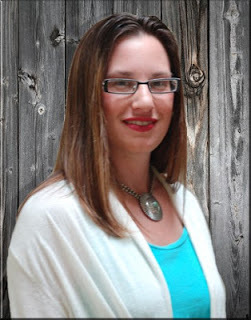
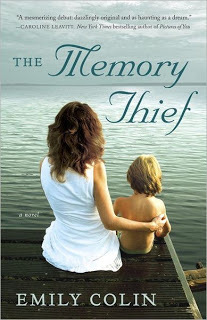
In every UCLA writing class I teach online, there are always one or two (or sometimes 5 or 6 if I am really lucky) writers who knock me out at the first sentence. Emily Colin was one of them. She was just starting The Memory Thief in my class, but the book was already so wondrously strange, beautifully written, and compelling, that I knew she had something extraordinary on her hands, and I knew how lucky I was to be able to work with her. Now, that novel is coming out (pre-order it now. Really. Trust me on this) and I'm honored to have Emily here. (Don't forget to take a gander at Emily's book trailer, too.
AND, the first two people to comment on this post will receive a copy of THE MEMORY THIEF. Please send me your email address if you are those lucky people! (carleavitt@hotmail.com)
What's so thrillingly satisfying for me is to see something bud and then bloom into this extraordinary novel. I first saw this novel when you were in my UCLA class, and truthfully, I knew from the first sentence, that you had something remarkable. What about you--do you suffer self-doubt? That you worry about this novel?
Before I started writing THE MEMORY THIEF, I’d spent years editing other people’s work—not to mention doing a lot of professional writing (grants, marketing, websites, magazine articles, you name it). But I hadn’t pursued my own creative endeavors in a long time. When I sat down to work on this book, I gave myself a year to finish it—and I just started writing, without design, reason or many organizational skills. I truly had no idea what I was doing, and to discover that you loved the book, even in its rough and early stages, was a welcome revelation. For sure, I worried if I’d wind up with anything readable, much less marketable. But—much like Maddie—I made the decision to have faith, took a deep breath, and jumped.
The scenes about mountain climbing are so real, that they are alternately terrifying and exhilarating. Can you talk about the research?
I do not like heights. Do not like them, Sam I am. Still, the concept of mountain climbing grabbed hold of me and wouldn’t let go. It was what this book was about—risk taking, pushing through limits—and so I set out to overcome my natural aversion. I started with armchair research—books, YouTube videos, blogs. Then I talked a friend into taking me to her home state of Colorado, where I had the good fortune to encounter three off-duty Outward Bound instructors who let me hang around with them all day, taking pictures, asking questions and generally making a nuisance of myself. At the time, there was a climbing gym in Wilmington, NC, where I live, and I set up shop there, quizzing anyone who would put up with it. I even signed my son up for climbing lessons once a week, and went with him each time, asking more questions and watching him learn. In the meantime, I went back to Colorado on my own, staking out a table in the Boulder Bookstore and writing for hours—just getting to know the area, absorbing the culture. And when I’d done everything I could on my own, I went to the owner of the climbing gym, Walter Kiesling, and asked him if he’d be kind enough to review the mountain climbing scenes. Walter made some incredibly helpful suggestions—complete with sketches, in fact!—that helped me immeasurably. And I was gratified to hear him say that, when he read the scene where Aidan explains to Maddie why he loves climbing so much, he felt as if he was reading about himself—his own motivations and desires. Any errors that remain are, of course, my own.
There's something otherworldly about this novel, almost mystical. Did you feel that as you were writing the novel, or did it take you by surprise?
From the very beginning, the writing process for THE MEMORY THIEF was surrounded by a remarkable atmosphere of coincidence—or fate, if that suits you better. In the very beginning, when I had about five words on the page, I was walking to a neighborhood park with my four-year-old, thinking, gosh, I really need to find someone who’s gone mountain climbing in South America. And then I got to the park and met a guy who’d done just that, and in fact, months later, he would go on to become the climbing consultant for my book—the guy who checked over all the scenes to make sure I hadn’t screwed up too badly. The whole time I was working on the book, stuff like that kept happening. It was eerie, really.
That said, the otherworldly, mystical aspect of the book itself was with me from the very first word. In some ways, it’s what kept my attention—the sense that anything was possible, and that the seams of reality had been stretched to accommodate my imagination. Originally, the first sentence of THE MEMORY THIEF was this: ‘The dream is always the same.’ In the inevitable onslaught of edits that followed, that sentence was lost…but the feel of navigating a dreamlike landscape never left me, and I think in many ways it defines the finished book.
So, if you had to tell new writers a few things to be aware of in writing a first novel, the pitfalls and the exhilarations, what would you say?
Wow. Well, first of all, I’d say—don’t give up. The creative process is just the beginning—finding an agent, a publisher and all the rest of it is hard work, and you’ve got to be willing to commit to it if you’re serious about the publication process. Develop a thick skin, and don’t take things personally. Remember that sometimes rejection has nothing to do with the quality of your work—your novel just might not be right for them, whoever they might be.
On the flip side, be open-minded! There’s a thin bright line between objective and subjective criticism, and if enough people critique the same aspect of your book, you just might want to consider revisions. Six months into my search for an agent—being the obsessive person I am, I had a spreadsheet with over 100 candidates, all alphabetically organized with notes about each person’s interests and our communication to date—I did a complete and total rewrite of the book. It was exhausting, and exasperating, and frustrating, too, because I didn’t know whether my decision to restructure the book would make a difference. But it did, and shortly thereafter, I found my wonderful and indefatigable agent, the lovely Felicia Eth.
In the exhilaration department … I’m thrilled that THE MEMORY THIEF found a home, and that on August 21st, the world will get to meet my imaginary friends. Of course, I’m also terrified that no one will like them, in the way that you feel when you send your child off to kindergarten—what if I’ve created a freak of nature? What if I’ve raised a science experiment that’s only fit to socialize with the classroom’s pet iguana? Neurotic person that I am, I feel a great deal of vicarious social anxiety for Maddie, Aidan and company—even though, as I keep reminding myself, they are not actually real. And on top of it all, I feel indescribably, incomparably lucky.
What's obsessing you now and why?
Good question. Hmmmm. Travel, because my next book is, in part, about an adventure cinematographer whose psychological aberrations—and inability to get close to anyone—keep him constantly on the move. Researching his avocation has reignited my desire to visit far-flung places … or maybe that desire inspired his character in the first place. It’s hard to say… I’m also currently obsessed with dyslexia, because Lucas is dyslexic and we are trying to make second grade as painless as possible for him. As someone who sees the world through the prism of language, it’s been enlightening—and challenging—to have a child who finds reading and writing to be the ultimate exercise in frustration. I’m determined to ensure that he loves literature all the same, and so we listen to a lot of audiobooks. Right now we are finishing up The Silver Chair, by C.S. Lewis, and then it’s on to The Last Battle.Other obsessions? Green olives, Manchego cheese, good red wine, and a freshly baked baguette. My fruitless search for a new pair of black boots. The interminable wait for the next book in Diana Gabaldon’s Outlander series, because I’m hooked. And the countdown to the season finale of Steven Spielberg’s Falling Skies, since deep down, I’m a sci-fi junkie. I hardly watch any television, but right now Sunday nights are when I indulge: Falling Skies, True Blood, and The Newsroom, all in a neat little row. Come on—aliens, vampires, werewolves, a telepath with fairy heritage, and the ongoing, equally absurd drama of breaking news. It doesn’t get much better than that.What question didn't I ask that I should have?
[image error]
Published on August 13, 2012 06:54
Thaisa Frank talks about Enchantment, her dazzling new collection of short stories, feeling like a three-year-old when she revises, and so much more
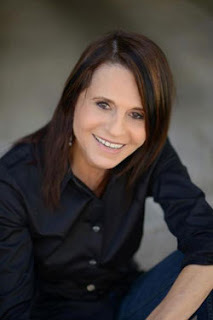
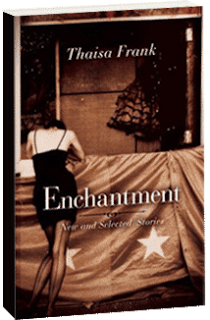
Thaisa Frank's short story collection, Enchantment, is like nothing you have ever read before. Unsettling, strange, and well, yes, enchanting, they comprise one of my favorite books of the year. She's also the author two other books of stories, two novellas, and thirty-three other stories. Her novels include Heidegger's Glasses, Sleeping in Velvet, and A Brief History of Camouflage, both on the bestseller list of the San Francisco Chronicle. She's the recipient of two PEN awards, and the co-author of Finding Your Writers Voice: A Guide to Creative Fiction, too. I'm honored to have Thaisa here on my blog. Thank you so much, Thaisa!
The stories in Enchantment are strange, weird, and well, enchanting. Where did they come from?
I never know where things in my imagination come from and I can’t really will them to happen. It’s almost as though there’s a pneumatic tube of the imagination and I hang out there when other writers are occupied so I get weird and cryptic assignments: It could be a title, like The Loneliness of the Midwestern Vampire. Or the image of an enchanted man. If I play with the assignment long enough, characters appear and they make the image or title earthbound. My characters have to adhere to the laws of gravity and deal with an ordinary world.
It sometimes takes a long time to find the link between the cryptic image or title and characters who are grounded in the mundane world. For example, the title story of Enchantment began when I had an image of a woman on her porch getting a UPS delivery of an enchanted man. She’d ordered him from an online site and he came with instructions to mist him twice a day. I started the story many times and couldn’t figure out how to move it forward. But when her sullen teen-aged kids appeared, I realized the heart of the story was about the woman hiding the enchanted man from her family.
Not all of my stories are triggered by surreal images. I’m fascinated by people, relationships and obsessions. Enchantment has a story about a character who wants to get a piercing (I did all my research online!), a woman who visits an old boyfriend, a cat that acts as a comforter, and two people who think they are soul mates. It also has two semi-autobiographical novellas with roots in my own life. These were hard stories to write because I had to invent and surprise myself to discover a universal element. After I finished, I felt as if I’d dived into a shipwreck and come up having lived a slightly different life.
These stories start for me in the same way more surreal stories start--that is, I often find people and relationships as captivating as a title or an image. I used to be a psychotherapist and friends would say “Oh, that sounds like a wonderful profession for a writer.” But it wasn’t a good profession because most psychological theory tries to explain mystery and I was more interested in illuminating it.. Whether I write about what’s apparently “real,” or something more surrealistic, I have to feel captivated and enchanted myself or I don’t feel motivated to write the story. As a kid I had a viewer that held discs so you could look inside and see three-dimensional scenes. I remember looking at Little Red Riding Hood, poised in the dark forest with her basket. I could feel the quiet of the woods and she seemed real, alive in another realm. I wanted to find a way to reach her. So when I talk about feeling enchanted, I’m talking about a feeling that started when I was very young.
Of course trying to talk about where stories come from feels a little like telling a fishing story: So much happens below the surface. So much happens quickly. And so much happens beyond my control. I think most writers feel this way.
The line between what’s real and what’s imagined is very blurred here, so I’m wondering, what are your particular boundaries like?
This has its roots in huge and eternal questions. What’s real? What’s imagined? What’s a belief? What’s fact? The debate never seems to end.
For myself--boundaries shift. When I have to cook a meal or teach or go to a party, I lunge for all the things that have nouns: Salt, sugar, paper, briefcase, earrings, lipstick, heels. Nouns and what they stand for feel solid and reassuring. I also like documentaries--the ultimate marriage between facts and images.
But there’s a part of life that has a shifting, luminous edge for me. So I live between reassuring fixtures and what’s inchoate, barely intuited, hard to put into words. That may be one reason why I’m receptive to what seems “given” by the imagination. Also putting something fantastic in a story but grounding it in the ordinary world is one way to explore these blurred lines. Readers I’ve met have told me this kind of fiction encourages them to imagine as well as see dissonance and absurdity.
Of course all fiction encourages readers to imagine and has blurred lines. Readers want to follow the characters home and see the difference between the stories they tell on the street and the way they live privately. My work ends up having to do this, too.
One last thought about the imagination: It seems to know more than we do. When I wrote Heidegger’s Glasses I made things up about WWII in the first draft because I do research later. When I got around to research a lot of what I made up really happened. Some coincidences must have been because I knew the facts subliminally. But there were so many, it seemed as though the creative imagination has phalanges and can time travel. Other writers say it happens to them, too.
You’ve written both novels and short stories, including Heidegger’s Glasses, A Brief History of Camouflage, and Sleeping in Velvet. How does writing short stories compare to writing novels?
In the beginning, the process is always the same. There’s a wonderful sense of free-fall during those first triggering sentences--the first promises to myself and to the reader. But they also create scaffolding that begins to define a world and at some point I have to improvise within the limits of that world. Eventually--whether it’s a novel or a short story--I come to a dead-end and think the exciting, triggering elements have tricked me into writing something that can’t go anywhere. But if I keep staring at the page the characters tug at my sleeve and move the story forward.
Here’s how novels and short stories are different for me: Scenes in short stories have a way of arranging themselves into a narrative arc without much advance plotting, but scenes in a novel have to sustain a longer momentum. At some point--maybe a third of the way through the novel--I have to figure out where it’s going. (I always feel especially stupid, as though I’ve landed on the moon without oxygen.) Once more, I’m hopelessly dependent on my characters and the way they’ll remind of their secrets and conflicting agendas. And if I listen--especially to what they’re hiding--I get clues about the larger arc.
Do you prefer one to another, and if so, why? .I like and find both forms frustrating and wonderful for different reasons. Short stories and flash fiction take less time and when I’m finished I can’t imagine that they could have turned out any other way. But there are so many strands in a novel it’s harder to be sure it had to turn out one way rather than another. Novels also take more time and have more dead-end moments.
On the other hand, writing a short story is a little like being employed for only a few weeks and a novel is a fulltime job for at least a year. When I wake up I know what world I’m going to visit, what challenges I’m going to face. I also miss the characters when the novel is over--even imagine they’ve gone on to be in other novels. Characters in short stories seem more ephemeral.
And you’ve also written a book on writing, Finding Your Writer’s Voice. What one bit of advice do you think is especially important for new writers (or seasoned ones) and why?
In my own experience, morale has been my greatest resource. It determines the risks I can take and how resilient I am--both in my writing and occasional confusions in the publishing world, which happens to be going through a second Gutenberg-Bible revolution. Other writers have talked about morale, too, and I’ve seen it in my students who persist and publish. So I think it’s important to create a life that supports your originality, your courage and your voice. Grace Paley put it best when she said that a writer needs just two things: Low overhead and a person who believes in your work.
What’s your writing life like?
Writing’s a little like having a store. I may not get any customers, but if I don’t show up there I have no way of finding out. I’m a sprinter, not a marathon runner, so I tend to write in long spurts and have days when not much is happening. But even during those days, I hang out with my work and try not to teach or make appointments until late afternoon. I take breaks by running and miss a great walking-city like New York where I can find a new neighborhood every few blocks. I often write late at night.
What’s obsessing you and why?
The novel I’ve started is obsessing me. I know just enough to realize it’s a novel but there are so many things I don’t know and want to know. I feel like a kid at a birthday party beating a steel piñata.
What question didn’t I ask that I should have?
I’m sort of glad you didn’t. But since you asked…. It’s what I look like when I read new drafts--namely like a frustrated three-year-old. I’ve crumpled up so much paper, I’m sure I’ll come back as a tree in my next life.
[image error]
Published on August 13, 2012 06:54



